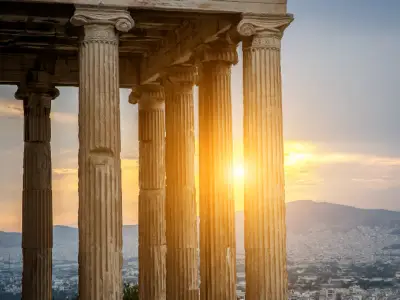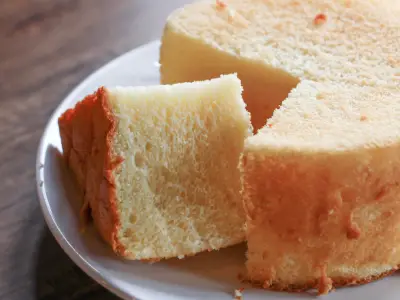Despite this, Oceanus plays an important role in the mythological world, embodying the vast waters that were believed to encircle the Earth. If you're curious about this enigmatic Titan, let's cover who Oceanus was, his powers, symbols, and his place in Greek mythology.
Jump To
Recommended for you!
Best SellersWhat is Oceanus Known For?
Oceanus is best known as the Titan of the great river that the Greeks believed encircled the entire world. This vast body of water was thought to be the source of all rivers, lakes, seas, and springs.
In this role, Oceanus was seen as a primordial deity—one of the ancient Titans, born to Uranus (the sky) and Gaia (the Earth). Unlike Poseidon, who ruled over the Mediterranean and seas within the known world, Oceanus governed this grand ocean stream beyond the Earth’s boundaries.
His peaceful and calm nature made him stand apart from many other Olympian gods, as he avoided the violent conflicts that often characterised ancient mythology.
The Myths and Legends of Oceanus
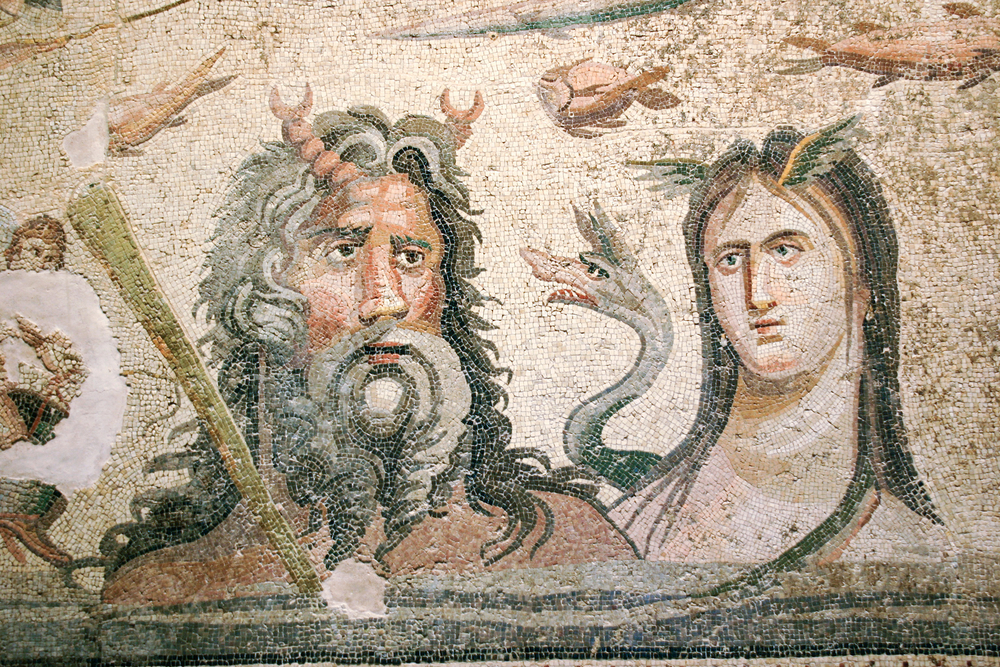
Oceanus’ story is deeply rooted in Greek mythology, as he was part of the first generation of Titans. His life and actions are often seen as peaceful compared to other deities. Let's explore some of the key events that shaped Oceanus' role in mythology:
Oceanus’ Neutrality in the Titanomachy
Unlike many of the Titans, Oceanus chose not to fight in the Titanomachy, the epic battle between the Titans and Olympian gods. While his siblings, including Cronus, fought fiercely against Zeus and the Olympians, Oceanus stayed neutral, avoiding the destruction that befell the others. His decision reflects his peaceful nature and wisdom, setting him apart from other Titans embroiled in the conflict.
The Role of Oceanus in Raising Hera
One of the most intriguing myths about Oceanus involves his role in raising Hera, the future queen of the gods. Along with his wife, Tethys, Oceanus is said to have taken care of Hera during her formative years. This nurturing aspect of Oceanus highlights his role as a protector and supporter of the next generation of gods, forging a unique connection with the Olympians.
Oceanus' Support of Zeus
In some versions of the myth, Oceanus is mentioned as quietly supporting Zeus during the Titanomachy, even though he did not directly participate in the battle. This further solidifies his role as a wise and neutral figure in Greek mythology, maintaining peace while helping to shape the future of the Olympian gods.
What Powers Does Oceanus Have?

As the god of the encircling ocean, Oceanus held dominion over all waters on Earth, including rivers, lakes, and seas. He was the source of every river and spring, providing life and sustenance to the Earth. His powers included control over the flow of water and its life-giving properties, and he was believed to have the ability to influence the natural order, ensuring the continued existence of water cycles.
Who is Stronger: Oceanus or Poseidon?
When comparing Oceanus to Poseidon, it’s important to recognise that while Oceanus symbolised the vast, overarching body of water surrounding the Earth, Poseidon had more direct influence over the seas that people used for travel and trade.
Poseidon was certainly a more prominent figure in myths involving conflict and power, but Oceanus’ role as a primordial deity placed him in a unique position of influence. Though Poseidon’s power was visible and immediate, Oceanus represented something deeper and more ancient.
The Symbols of Oceanus
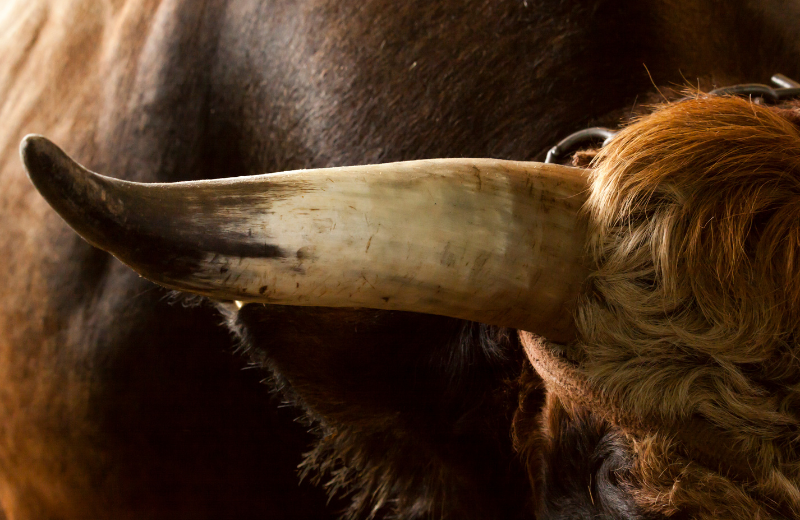
Oceanus is represented through various symbols that reflect his dominion over water and his connection to the natural world. These symbols highlight his power, strength, and the endless flow of life that water provides:
The Bull's Horns
One of the most prominent symbols associated with Oceanus is the horns of a bull. These horns symbolise fertility and strength, representing Oceanus' power over the life-giving force of water. The bull’s horns are a reminder of his ability to nurture and sustain all living things.
The Fish Tail
Oceanus is often depicted with the tail of a fish, directly connecting him to the aquatic realm. This symbol emphasises his control over the vast oceanic waters that encircle the world. The fish tail resembles the fluidity and adaptability of water, as well as Oceanus' link to the natural world.
The Serpent
Another key symbol tied to Oceanus is the serpent, which he is frequently shown holding. The serpent symbolises the cyclical nature of water and life—constantly flowing, regenerating, and sustaining the Earth. This unbroken cycle mirrors Oceanus' eternal influence over the world’s waters.
Oceanus' Relationships, Children, and Family Tree
Oceanus' relationships and family connections are central to his role in Greek mythology, as his vast lineage extends across many notable deities. His familial ties help explain his influence over water and the natural world.
Parentage and Siblings
Oceanus was born to Uranus (the sky) and Gaia (the Earth), making him part of the first generation of Titans. His siblings included other powerful Titans, such as Cronus and Rhea. Oceanus stood apart from his siblings, however, choosing a path of neutrality during the conflicts that would later shape the mythological world.
Marriage and Children
Oceanus married his sister, Tethys, the Titaness of fresh water. Together, they had an enormous family, including the Oceanids, thousands of water nymphs who represented the rivers, streams, and lakes of the world. Additionally, they were parents to various river gods, such as the deities of the Nile and the Ganges, solidifying Oceanus' connection to all forms of water.
Oceanus’ Worship and Legacy
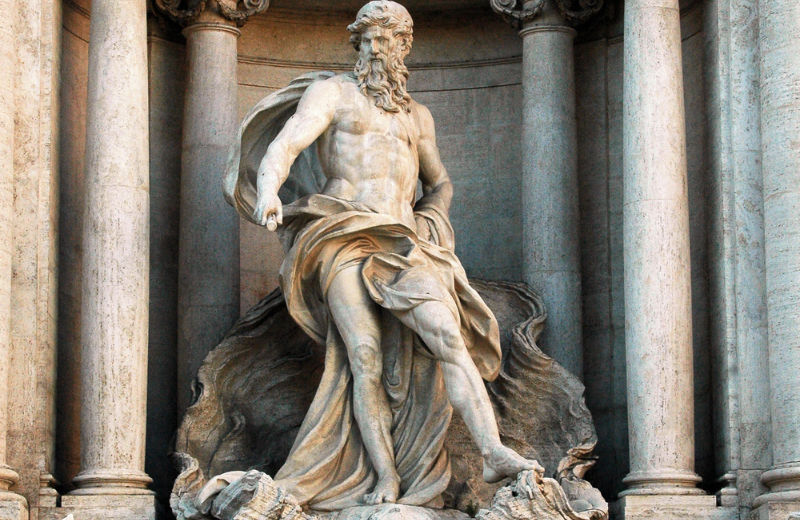
While Oceanus did not have as many temples or shrines as gods like Zeus or Apollo, his influence can still be felt in ancient religious practices. Sailors and travellers often invoked his name, seeking safe passage across the seas and rivers.
Offerings were made to Oceanus to ensure the water’s continued flow, providing life to crops, animals, and humans alike.
Oceanus' legacy lives on in the way we view the ocean and water as essential to life. His image and symbols are reminders of the role water plays in sustaining our world, and his peaceful nature stands in contrast to the more aggressive deities who dominate much of Greek mythology.
Recommended for you!
Best SellersFrequently Asked Questions About Oceanus in Mythology
Was Oceanus a god of war?
Oceanus was not a god of war. Unlike many other deities in Greek mythology who were involved in battles and conflicts, Oceanus was a peaceful figure. His domain was over the world's waters, and he is best known for his neutrality during the Titanomachy, the war between the Titans and Olympians.
What is Oceanus' weakness?
Oceanus' main weakness, if it can be called that, lies in his passivity. He chose not to engage in the major conflicts that other Titans and Olympian gods faced, such as the Titanomachy. While this showcased his wisdom and peaceful nature, it also meant that he did not assert his power in the same way other gods did.
Is Oceanus more powerful than Neptune (Poseidon)?
While Oceanus represents the grand, all-encompassing body of water that encircles the Earth, Neptune (or Poseidon in Greek mythology) had a more direct and prominent role in myths concerning the sea and was often seen as more powerful in the traditional sense. Poseidon controlled the oceans people sailed on, while Oceanus' influence was more abstract, governing the waters beyond the known world.
Did Oceanus have a temple or religious following?
Unlike gods like Zeus, Oceanus did not have many temples or a widespread religious following. However, sailors and those who depended on water for their livelihoods often made offerings to Oceanus, seeking safe travel and continued abundance from the waters.
What does Oceanus look like?
Oceanus is typically depicted as a bearded man with the horns of a bull and the tail of a fish. He is often shown holding a serpent, which symbolises the cyclical nature of water and life. These features reflect his dominion over the vast, life-sustaining waters of the Earth.
Who killed Oceanus?
Oceanus was not killed in any mythological stories. Unlike many other Titans, Oceanus avoided conflict, particularly the Titanomachy, and thus did not meet the same fate as some of his siblings, such as Cronus. His peaceful nature helped him survive the downfall of the Titans.
Study Greek Mythology for £29
The story of Oceanus is just one of many fascinating tales in Greek mythology, rich with themes of power, revenge, and moral complexity. If you’d like to learn more about these myths and explore the characters, symbols, and stories that have shaped Western culture, consider enrolling in the Greek Mythology Diploma Course with Centre of Excellence. For a limited time, you can access the course at a discounted price of £29!










